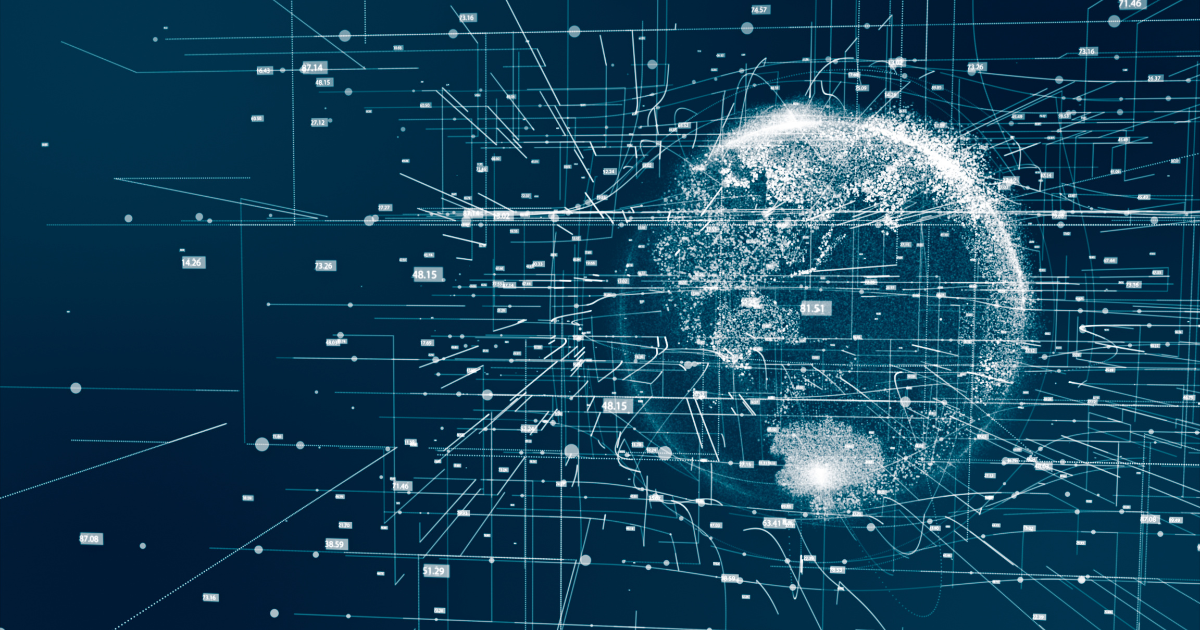
June 27, 2024
Examples of Artificial Intelligence (AI) in Construction
Author:

CEO & Co-Founder
Reading time:
9 minutes
The construction industry is among the least digitized industries across the globe. [1] Historically, the industry is primarily manual, which makes project management more complex and needlessly tedious. Project delays, cost inefficiencies, poor-quality performance, and health and safety issues are consequences of the industry’s limited digital expertise. [2]
However, the adoption of artificial intelligence (AI) in the construction industry has been on an upward trajectory in recent years. AI in the construction industry stood at a value of $466.9 million in 2020. [3] And according to Market Research Future, the value of the market is expected to rise to $2512.8 million by 2030. [4] With large data volumes generated throughout the construction lifecycle, AI has the ability to exploit these datasets and derive valuable insights to improve construction processes.
Let’s have a look at how artificial intelligence can be used in the construction industry.
Designing buildings
3D modeling marked a revolution in the construction industry. It helped the industry move from painstaking pencil drawings to ‘walkable’ designs. It also allowed for the incorporation of all angles and finer details into one detailed design.
Building information modeling (BIM) is the latest revolution in the construction industry. Over 80% of US construction companies use BIM [5] since it allows architects to create digital 3D models of a building design.

With 3D models, architects and engineers can see a representation of what the structure will look like upon completion and how it will function. So they can make wise design decisions that will contribute to significant money savings and easier building maintenance for owners in the future.
BIM uses machine learning to conceptualize design areas in 3D, including electrical, plumbing, architecture, and mechanical systems. This helps to speed up the overall design process.
BIM also adds data management to the 3D modeling concept. It collects data digitally about every phase of the construction process up to completion, and stores all the project information in a resource database accessible by all project stakeholders. Through the rapid exchange of design information, different design models can be explored rapidly. The outcome is an accurate, optimized building design that doesn’t clash with other already created models.

Read more: Artificial Intelligence in Real Estate: Use Cases

Occupational safety
The construction industry records higher numbers of occupational injuries and fatalities than other sectors. [6] Construction sites typically have inherent dangers like hearing loss from excessive noise, risk of falling due to working from high heights, and health risks due to exposure to dust and other hazardous materials. [7]
For employers, these occupational safety risks could mean high insurance premiums, reduced productivity, litigations, and multiple employee claims. AI in construction comes in handy to forecast mishaps or health hazards before they occur and to avoid them.

Some worksites have adopted the use of computer vision cameras to detect various code violations, including:
- Detecting tools not stored correctly and posing safety hazards
- Workers not putting on the required safety gear
Other examples of AI applications in occupational safety include:
- BIM-based fall hazard detection and prevention. [8]
- Wearable sensors like Spot-r detect the location of your workers and issue any alerts if an employee slips or falls. [9]
- An AI solution like Newmetrix uses predictive analytics to inform you how to avoid accidents before they happen at your construction site. The predictive-based software can reduce recordable incident rates by up to 40%. [10]
Construction scheduling
Many construction projects experience late completion or exceed the original budget. Design flaws, unforeseen events, erroneous forecasts, and increased scope are just but a few of the reasons behind this.
International research firm IDC conducted a survey on the challenges faced by construction project owners and developers. The survey findings reveal that 77% of construction projects were delivered late, while 75% of projects exceeded the estimated budgets. [11]
The survey further revealed that budget overruns and late project deliveries coincided with manual or outmoded processes across the construction process. However, construction projects that leveraged digital solutions ended on schedule and on budget.

AI in the construction industry plays a key role in the scheduling process. AI-based predictive models can process the myriad parameters in a construction project and analyze progress at the worksite in real-time. Thus, AI can generate the best schedules and work costs to guarantee on-budget and on-time project completion.
ALICE is a good example of an AI-based predictive tool for construction scheduling. ALICE uses artificial intelligence to examine a project’s building requirements and produce detailed building schedules. Those building schedules can also be fine-tuned based on the changing realities during construction. This innovative tool can reduce construction time by 17% and costs by 11%. [12]
Worksite productivity
Good project management in construction entails efficient use of labor, materials, and equipment. Worksite productivity has always been a problem in the construction industry, but artificial intelligence has now guaranteed maximum efficiency at construction sites.
AI in construction provides a bird’s eye view of all the activities taking place on-site. For example, image recognition technology can monitor working hours, what workers are working on, and the work progress. This allows construction site managers to monitor the productivity of large construction sites. It could also serve as digital evidence of the amount of work completed by workers on-site.

For machinery, sensors help gather data and boost productivity on construction sites. The sensor data reveals when the machinery is in use and when it’s idle. So, project managers can plan how to make the most out of construction equipment.
Artificial Intelligence monitoring can also serve as evidence for insurance or mortgage providers that buildings have been constructed as per the appropriate quality guidelines in place.

Read more: How to track and analyze Production Quality using AI

Use AI in the construction industry!
More and more construction professionals are turning to artificial intelligence to solve the productivity problem and other myriad industry issues. The benefits of AI in construction are immense. It will reduce expensive design errors, improve worksite safety and productivity, and ensure timely and on-budget project completion.
In an industry that has been change-resistant for a long time, shifting to AI technology may be a major change for many people. A key concern of AI in the construction industry is that it will replace the human workforce with robots. Of course, that’s not the truth. AI technology seeks to support workers by enabling them to work more efficiently and in safe conditions. The new automation technologies actually create new job opportunities that attract a pool of talent into the construction sector.
Construction companies should therefore educate and train their staff on the correct use and advantages of adopting these technological advancements. This will help them achieve their short and long-term goals. If you want to benefit from AI in construction, start with AI consulting services to see what can be done and achieved in your specific situation.
AI in the Construction Industry – FAQ
Why is the construction industry considered one of the least digitized industries globally?
Historically, the construction industry has relied heavily on manual processes, which has led to complexities and inefficiencies in project management. These include project delays, cost overruns, poor-quality performance, and safety issues due to limited digital adoption.
What is the current market value of AI in the construction industry, and what is its projected growth?
In 2020, the AI in construction market was valued at $466.9 million. According to Market Research Future, this value is expected to rise to $2512.8 million by 2030.
How does Building Information Modeling (BIM) revolutionize the construction industry?
BIM allows architects to create detailed digital 3D models of building designs, integrating electrical, plumbing, architectural, and mechanical systems. This technology facilitates rapid information exchange, helps avoid design clashes, and optimizes building designs for cost and maintenance efficiency.
What role does AI play in enhancing occupational safety on construction sites?
AI helps forecast and prevent potential mishaps and health hazards. Computer vision cameras detect safety violations, while BIM-based systems and wearable sensors monitor and prevent fall hazards. Predictive analytics from solutions like Newmetrix can significantly reduce incident rates on construction sites.
What are the benefits of adopting AI in the construction industry?
AI adoption in construction leads to reduced design errors, improved safety, enhanced productivity, and ensures timely and cost-effective project completion. AI supports workers by enabling safer and more efficient working conditions rather than replacing them.
What concerns exist regarding AI adoption in construction, and how can they be addressed?
A common concern is that AI will replace human workers with robots. However, AI aims to support and enhance human labor. Educating and training staff on the use and benefits of AI technologies can help construction companies overcome resistance to change and achieve their goals.
This article is an updated version of the publication from Jun 28, 2022.
References
[1] D. Young, K. Panthi, O. Noor. Challenges involved in adopting BIM on the construction job site. EPiC Series in Built Environment 2 (2021) 302–310. Accessed June 22, 2022
[2] A. Nikas, A. Poulymenakou, P. Kriaris. Investigating antecedents and drivers affecting the adoption of collaboration technologies in the construction industry. Autom. ConStruct. 16 (5) (2007) 632–641. Accessed June 22, 2022
[3] Mordorintelligence. com. AI in Construction Market. URL: https://www.mordorintelligence.com/industry-reports/artificial-intelligence-in-construction-market. Accessed June 22, 2022
[4] Globenewswire.com. AI in Construction Market Will Touch USD 8Million by 2030. URL: https://bit.ly/3Aa1r7N. Accessed June 22, 2022
[5] Marketwatch.com. The Construction Industry Has a Productivity Problem and Here’s How to Solve it. URL: https://www.marketwatch.com/story/the-construction-industry-has-a-productivity-problem-and-heres-how-to-solve-it-2017-03-04. Accessed June 22, 2022
[6] S. Winge, E. Albrechtsen, B.A. Mostue. Causal factors, and connections in construction accidents. Saf. Sci. 112 (2019) 130–141., Accessed June 22, 2022
[7] A. Ajayi, L. Oyedele, J.M.D. Delgado, L. Akanbi, M. Bilal, O. Akinade, O. Olawale. Big data platform for health and safety accident prediction. World J. Sci. Technol. Sustain. Develop. 16 (1) (2019) 2–21., Accessed June 22, 2022
[8] S. Zhang, et al. BIM-based fall hazard identification and prevention in construction safety planning. Saf. Sci. 72 (2015) 31–45 Accessed June 22, 2022
[9] Esub.com. The Future of Construction. URL: https://esub.com/artificial-intelligence-construction-future-construction. Accessed June 22, 2022
[10]Newmetrix.com. URL: https://www.newmetrix.com/. Accessed June 22, 2022
[11] Procore.com. Press of Corporate and Public Real Estate Owners Over Budget on Construction Projects. URL: https://bit.ly/3NFDUyR. Accessed June 22, 2022
[12] Alicetechnologies.com. URL: https://www.alicetechnologies.com/home. Accessed June 22, 2022
Category:





